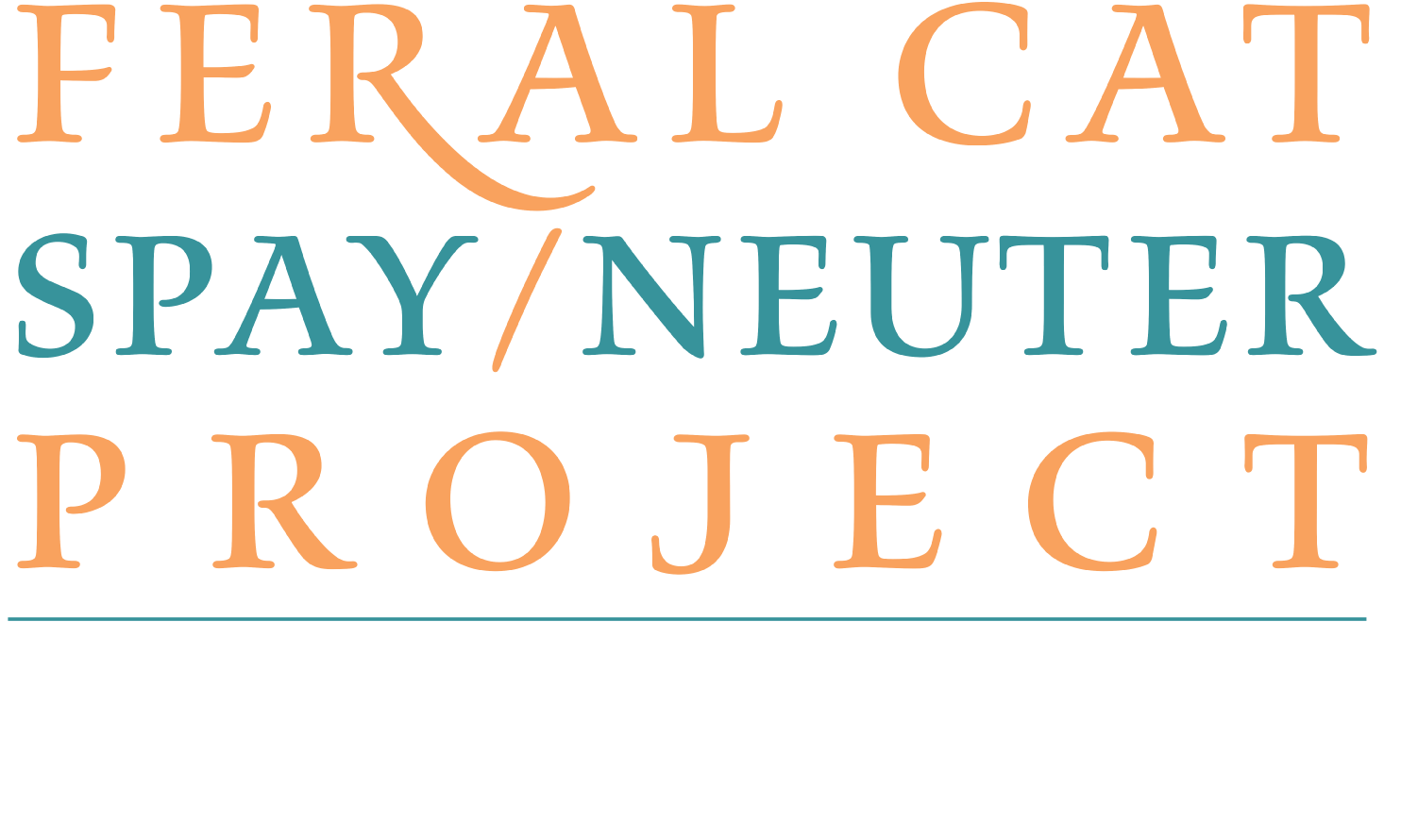WHAT IS A FERAL CAT?
The term "feral" describes a particular behavior a cat exhibits when it has not been socialized to people. For our purposes we choose to call free-roaming cats "community cats," and use the term "feral" to describe a behavior community cats may convey.
WHY DO THESE CATS NEED OUR HELP?
Left unaltered, free-roaming cats continue to reproduce creating more homeless kittens. Through TNR, free-roaming cats live out their lives without adding to the homeless cat population. According to scientific studies, free-roaming cats gain weight and live healthier lives after being altered. TNR programs are proven to stabilize and significantly reduce the size of free-roaming cat colonies. By limiting free-roaming cat populations, fewer unwanted and homeless cats are taken to shelters and euthanized.
WHAT IS EAR-TIPPING?
Ear-tipping is an effective and universally accepted method to identify community cats that have already been sterilized and vaccinated. A small portion (the "tip") of one ear is surgically removed while the cat is under general anesthesia. Because it can be difficult to get close to certain community cats, an ear-tip provides an immediate visual identification which can be seen from a distance. Seeing an ear-tip alerts members of the community that the cat has been altered and vaccinated, and does not need to be trapped again (which can be very stressful for the cat). No other method of identification has proven to be as safe or as effective as ear-tipping.
WHERE DO COMMUNITY CATS COME FROM?
The source of free-roaming community cats is endless. These cats come from pet stores, newspaper ads, online sites, shelters, etc. All community cats are the descendants of unaltered tame cats. Because unaltered tame cats are the origin of community cats, we offer spay/neuter services for all cats.
WHAT IS THE BEST THING I CAN DO FOR COMMUNITY CATS?
Consider implementing Trap Neuter Return (TNR) in your neighborhood! Once altered, free-roaming cats can continue to live out their lives in their community without adding to the homeless cat population. Those cats who are spayed/neutered live healthier lives, and exhibit less nuisance behavior (spraying, fighting, etc).
WHAT IS TNR?
Trap-Neuter-Return (TNR) is a process that allows community cats to be humanely trapped, spayed/neutered, vaccinated, ear tipped and released back to their familiar environment. Often kittens and tame cats who are trapped may be placed with rescue organizations for adoption. TNR is the most humane and effective method to control the overpopulation of community cats. The best part is, anyone can get involved - you do not need to be part of an organization to learn how to trap cats for TNR.
I HAVE A GROUP OF KITTENS BORN FROM A FERAL MOM THAT I WOULD LIKE TO REHOME. WHERE CAN I BRING THEM?
We recommend getting all the kittens spayed/neutered before adoption. This will give them a better chance of being adopted, and will help stop the cycle that leads to overpopulation. Below is a list of organizations that you can reach out to about surrendering cats.
Please note, all shelters have different criteria and processes for taking pets in. We recommend calling or emailing any shelter before bringing a pet to them. Most operate on a by appointment only basis, and will not be able to admit a cat via a drop in.
WHAT IS A CAT COLONY?
A cat colony is a group of community cats that live in close proximity to each other. Colonies are often formed around a shelter and food source.
WHAT IS A COLONY CARETAKER?
A colony caretaker is someone that provides food, water, and outdoor shelter for a colony of cats, making their lives a little easier. The caretaker also monitors the colony for any newcomers, and ensures any new cats are trapped, neutered, and returned. If you are feeding a colony of cats and need assistance with securing food, Bella's Voice in Lynnwood operates a pet food bank—please visit their facility to apply.
DO PEOPLE BOND WITH FERAL/COMMUNITY CATS?
Absolutely! People bond with the cats and the cats bond with their caretakers! Many of the cats that are cared for by a caretaker know their feeding schedule and will eagerly wait for their caretaker to bring them food and water. Others may recognize the sound of their caretaker's car and wait until they hear the familiar sound before appearing from their safe hiding spots. Feral community cats tend to bond with their caretakers and may even allow them to get within a few feet of them. Otherwise, they are fairly reclusive.

